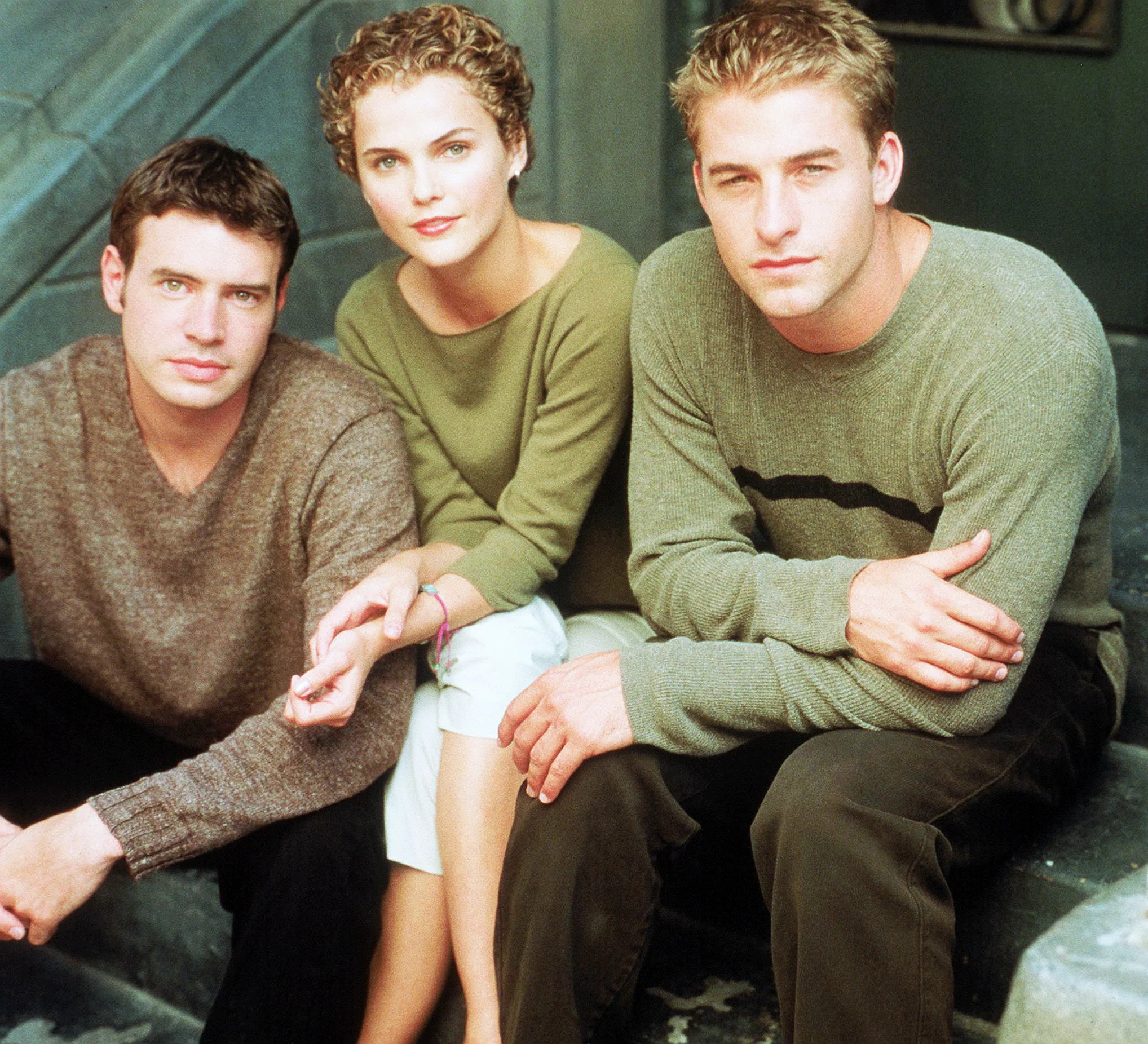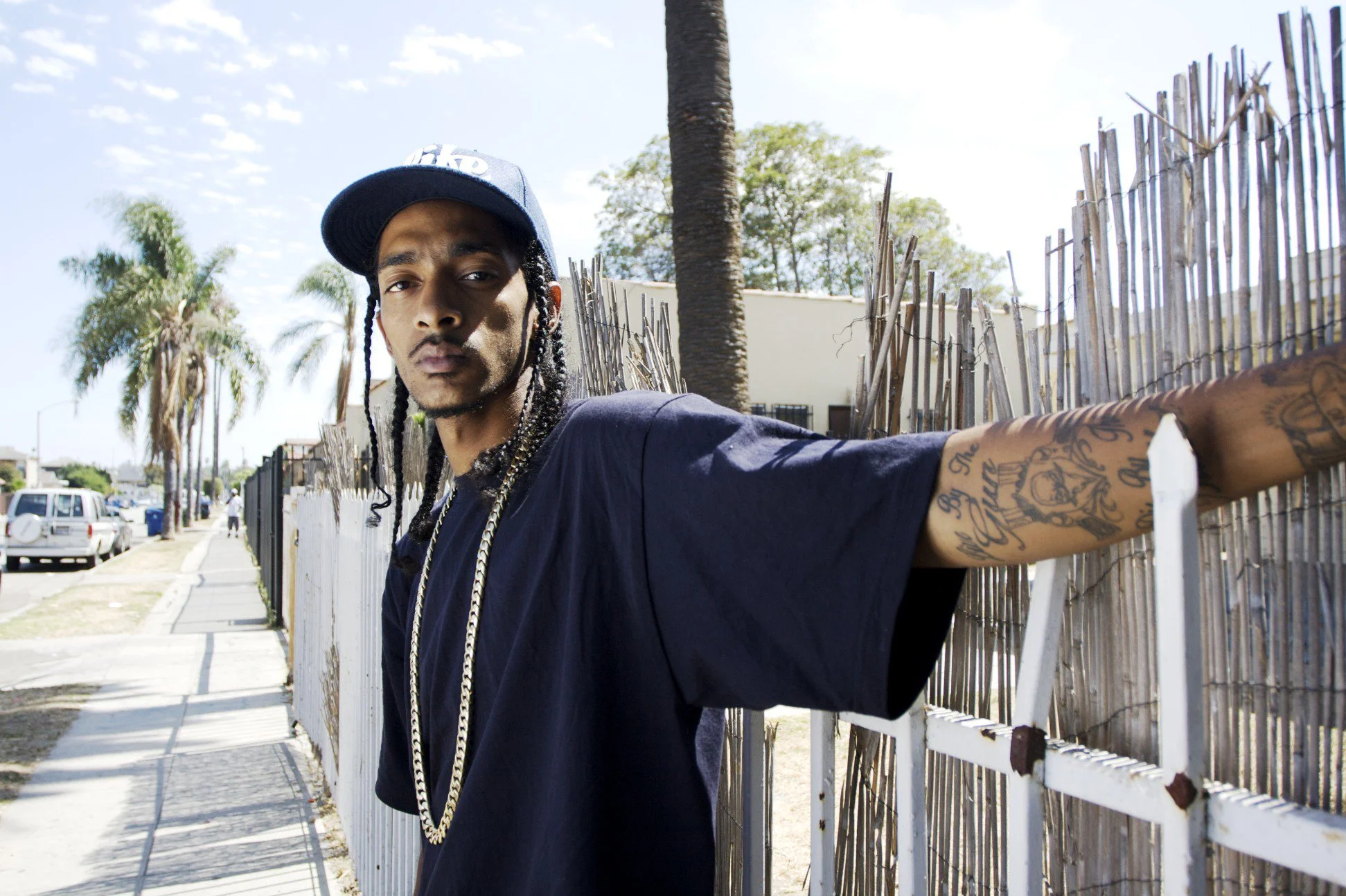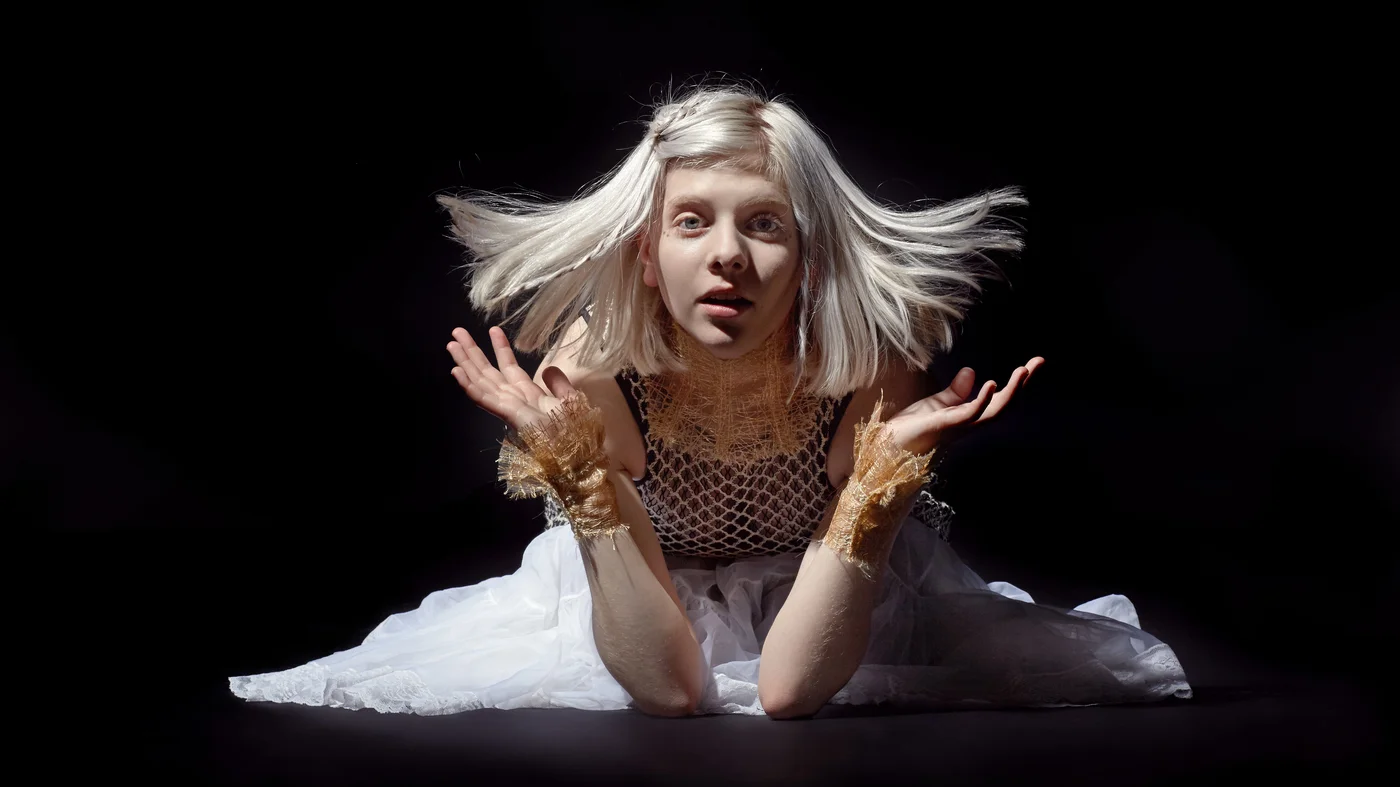Madonna Wade-Reed
Madonna Wade-Reed is a powerful, accomplished music supervisor and the owner of whoopsie daisy. After moving to Los Angeles, Madonna explored many paths in the entertainment industry, gaining a 360 view of how film and television are made before finding her true calling in the field of music supervision. In her decorated career, Madonna has cultivated the sonic statements of television phenomenons and engaging films including Smallville, Felicity, One Tree Hill, Alias, The Shannara Chronicles, Blue Mountain State, American Crime, and The Perfect Score. In 2005, Madonna received a coveted Guild of Music Supervisors Award for her thoughtful work on Reign, a fictionalized spin on the drama and intrigue of historical figure, Mary Queen of Scots. In our thoughtful exchange, Madonna reveals how she tackled All American, the fresh football focused drama series, and her game plan to convey the layers of Los Angeles through music.
Courtesy of Subject
Prior to your career in music supervision, you served in a variety of capacities, assisting a producer, a notable actor, and a commercial director. What insights did you gain from seeing the industry from diverse vantage points? How did these experiences prepare you to succeed as a music supervisor?
It was a conscious choice on my part, when I moved to Los Angeles, to try and work for a variety of people before making any real decisions about what I wanted to focus on. I knew I wanted to work in Film and TV production and I figured the best way to understand all aspects of it was to see how it was created from the ground up. I was very fortunate in that I really got to see the nuts and bolts of how everyone had a role and responsibility to make the whole production come to fruition.
At the start of your career in music supervision, you contributed to many beloved and iconic shows including Felicity, Alias, One Tree Hill, and Smallville. Can you tell us about how your approach to music supervision has evolved over time? What have been the advantages presented by the digital paradigm? Is there anything that you perceive has been lost during the rapid emergence of the age of information?
I think the initial steps in my approach have never changed. I start with the script and immediately delve into the lives of not only my characters but also their surroundings, the environments where their stories take place. I often struggle in the beginning until I actually see something on film or “meet” the character on screen. So often understanding who someone is or where they live will dictate what they will “sound” like. What has changed dramatically is how I receive music and really how much faster I get it now.
It’s great in that I can have an idea for some songs for a scene and they can be in a producer or editor’s hands in a matter of seconds versus back in the day when you had to burn a CD and get it physically to someone. I don’t miss those days, but what I do miss a little is the feeling of cracking open a CD, reading the liner notes, and examining the artwork. So much of that experience told you something about the artist and who they were and to invest in the desire to see them succeed. I miss that. I don’t get the same rush Google-ing someone as I did reading what they wrote about the “making of this record."
All American is inspired by the life and times of professional football player, Spencer Paysinger. The pilot set the table for the series, introducing themes of poverty vs. affluence, bullying and gang violence, subtle and overt racism, love triangles, family secrets, and more. What resonated with you about this story? What features of this show do you believe demonstrate exceptional promise? How did you want the audience to relate to your soundtrack?
I fell immediately in love with the story because I have walked a mile in similar shoes. No one had to explain to me what it must have been like to be Spencer. I get it. The fact that I could help tell a story that was so close to my experience was a gift — a chance to use music to show a wide audience of people what it feels like to straddle two worlds. I think we do an amazing job of truthfully representing who all of our characters are and more importantly, who they aren’t. Musically, I lean into certain genres for specific environments or events, but when it comes to the more emotional moments, I’ve got no rules. If a song can move an audience and bring them closer to understanding someone’s story, then I don’t care where it came from and could care less about what genre it is. First, I want the audience to feel something when a song starts playing and then I want them to want to more about what and who they heard. Hence, my posts contain the hashtag #enjoywhatyouseeinvestigatewhatyouhear.
Your music supervision for All American is truly a masterclass of the art form. The soundtrack is incredibly cohesive and supportive of the storytelling. It is bold and energetic in a way that magnifies the bravado of sportsmanship. Can you elaborate on what factors governed your music selection process at the outset of this project? Which artists really spoke to the flavor of the show and how did you find them?
The pilot was a challenge. Knowing that so much of what we did was going to dictate what the series was going to sound like put an immense amount of pressure on me. I’m hard on myself and never want to get it wrong. I knew that if we were going to be in Crenshaw that it damn well better sound like that’s exactly where we were. If we were cracking helmets on the football field, then the music needed to make you feel like you were right there on the sidelines. I also spent a lot of time looking at artists who were born and bred in L.A. I knew I wanted to pay my respects to Spencer and where he grew up, so I made sure we include the music of some local artists.
All American is dominated by both emerging and familiar hip-hop tracks. It almost feels like wherever Spencer goes, the music serves as an extension of his identity and represents his authentic self. From your perspective, which syncs in All American directly speak to the character of Spencer and why?
The most important one, hands down, is Nipsey Hussle. I knew I wanted a track of his in the pilot no matter what. The moment in the pilot, when Spencer walks home and Grindin’ All My Life plays, was the most pivotal moment for me musically. It set the standard, and I had to help portray who this young man was and what was going to propel him to make a life-changing decision — no pressure. It had to be a song from a local artist, no question. I later found out that our “Spencer” [actor, Daniel Ezra] had been listening to Nipsey on repeat for inspiration for how his character would speak because Daniel is actually British. I just love that neither of us knew we were finding inspiration for different reasons, from the same artist.
All American takes place between the charmed lifestyle of Beverly Hills and the harsh realities of Crenshaw. Does that stark contrast provide you with unique musical opportunities? How do you transmit the character of Los Angeles into this narrative?
I defiantly aim to keep things light in tone when we’re in Beverly Hills, to actually keep the illusion of the charmed life alive. It also really needs to sound like it’s miles away from what we hear when we’re in Crenshaw. When we’re in Crenshaw, and it’s late and less than legal stuff is happening, it has it’s own sound to it. It’s usually a little darker and grittier. I like to treat my music choices as if you were watching TV with your eyes closed. You’ll know exactly where you are when you hear the music.
You have previous experience defining the musical identities of sports-centric shows, such as One Tree Hill and Blue Mountain State. Did these past projects influence your approach to shaping the sound of All American? On this topic, do you have any general insights into music supervision for American sports-related programming?
I learned very early on that music used under sports works best when it has strong beats and a tempo that propels the action, and an editor can cut picture to it. When all the components work well together, it makes the action feel as though it's been specifically choreographed to the music. I also love when the lyrics of the song speak to the desire to win, to be the best or beat the odds.
Reign was a romantic period drama series that offered a fictionalized take on the adventures of Mary Queen of Scots. You were applauded for your clever and thoughtful placements of contemporary music and beautifully rendered cover songs within a historical context. Can you share some of the musical highlights you facilitated over four seasons of Reign?
I loved that I found a way to make contemporary music work in that series. One of the highlights was using the music of The Vitamin String Quartet. Their covers of contemporary songs really managed to straddle the nuances of renaissance music with a modern song. We used their covers of Royals by Lorde, Stubborn Love by Lumineers, Chandelier by Sia, Love Me Like You Do by Ellie Goulding and Stay With Me by Sam Smith. I also really enjoyed when we got to use strong female vocals to match the personality or our queen. Some favorites were Ruelle, Gabrielle Aplin, Agnes Obel, London Grammar and Aurora.
You are known for championing up and coming talent and offering them a platform to reach a wider audience through the shows you supervise. Who are some of the artists you have empowered with a sync and who haven’t you placed yet but hope to find an opportunity for in the future?
I think one of the reasons someone becomes a music supervisor is because they love music and their drug of choice is discovering something new that they love. The fact that I happen to have a job where I can then turn around and possibly help others fall in love with something that I like is such a privilege. I never forget how lucky I am to do what I do. I wouldn’t say I empowered anyone; I just did my small part. But if I had to choose my favorite placement that impacted a band, I would have to say it was seeing a band like Remy Zero become the theme for Smallville.
It was probably one of the most satisfying placements ever, and it definitely changed their lives. I have a few artists I’m really loving right now and am trying to place in projects. I’m like a dog with a bone when love an artist and will keep pitching them over and over again till someone finally let me use them. So, right now, I’m relentless with artists like Rex Orange County, Mahalia, Tom Misch.
Going forward, what can we expect from whoopsie daisy? Is there anything you can share with us about Needle in a Timestack?
I’m working on a limited series called The Red Line, which will probably air in the spring of 2019 on CBS. It’s about how three families are affected by the mistaken shooting on an unarmed African American doctor by a white cop. I am also in the final stretch of post-production on Needle in a Timestack. Very happy to be working again with John Ridley and this time with him, not only producing but also directing. It’s an interesting project in that people will look at it and simply say it’s a film about time travel but it’s actually a love story set against the backdrop of time travel. I will say this because it takes place in the near future, there were no rules about what the music should sound like. So, though I can’t say exactly what music is in it just yet, I will say that it’s a combination of what John personally likes and what I personally like.
Interviewer | Ruby Gartenberg
Research, Editing, Copy, Layout | Ruby Gartenberg
Extending gratitude to Madonna Wade-Reed.


















